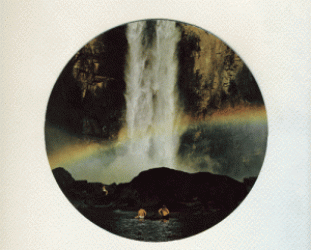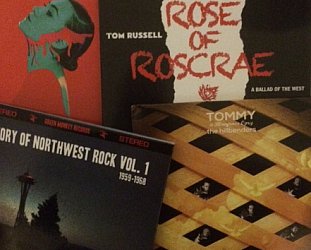Graham Reid | | 1 min read
SJD: Make Love Ask Questions Later

Few New Zealand songwriters work with a sense of the mysterious in their lyrics, most are grounded in relationships (far too many going the you/I route) but SJD -- Sean James Donnelly -- not only reaches in that profitable direction but has the airy voice to pull it off.
So on the opener here when he sings of giving thanks to lizard kings above -- and marries that to ethereal electronics -- you know you are in for some kind of interesting trip. It is an enticing, strange and mysterious start to an album which weaves through equally fascinating imagery: "forgive the infidel . . . raise up the Jezebel" on the updraughts of melody in Make Love Ask Questions Later, and the imagined personal histories in Song of Baal.
SJD delivers these discrete songs on warm (or cold) beds of layered electronica which sometimes have a disconcerting emotional distance despite the lyrics (the cool and spacious Ultravox-like European mood of Empty World where the singer yearns for a lost love and offers an engaging Eno-minimalist chorus).
Others have an astral quality (the instrumental Hypnotised by Roads where it feels like Kraftwerk have gone the whole Back to the Future route and the DeLorean has achieved gentle lift-off).
On Lena he sounds like a world-weary Roy Orbison/Bono in a slowly decaying nightclub on a spacecraft piloted by David Lynch. For the fragile On the Driveway he is a sadly romantic observer in suburbia, and Song of Baal comes from a similar emotional place but goes for a more grand emotional and geographical sweep.
And SJD has the confidence to end the album on the stately and rather wistful Wolves ("we throw our stones to sea like little bits of never, night descends around us, but we'll never be wolves").
There is frequently an elegance and, yes, mystery in SJD's writing, delivery and sonic settings and that entices you back for repeat hearings to unpick all the details. And here, on an album recorded purely on electronic equipment there is a very human heart at work.
Only the lesser, very retro These Are The Names (think Blur's Boys and Girls recast into the techno-Eighties) here breaks the spell, but SJD's albums are generally slower growers than most so perhaps given time this one might reveal more charms.
SJD occupies a musical territory of his own making and this album, very different to its predecessors yet part of the same consciousness, is a late entry into the album of the year stakes.







post a comment